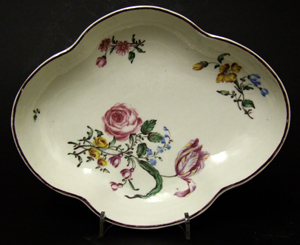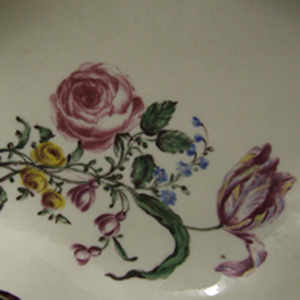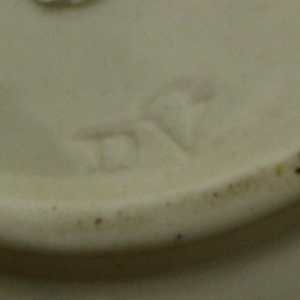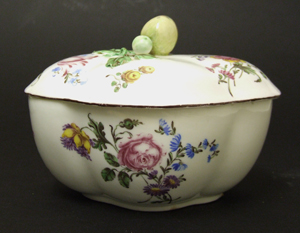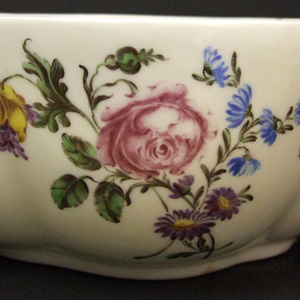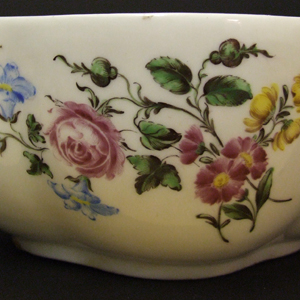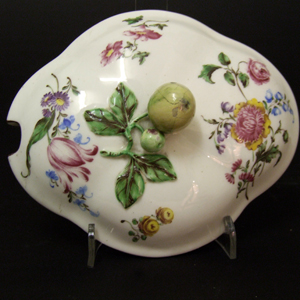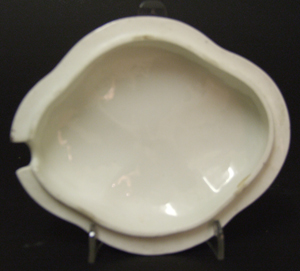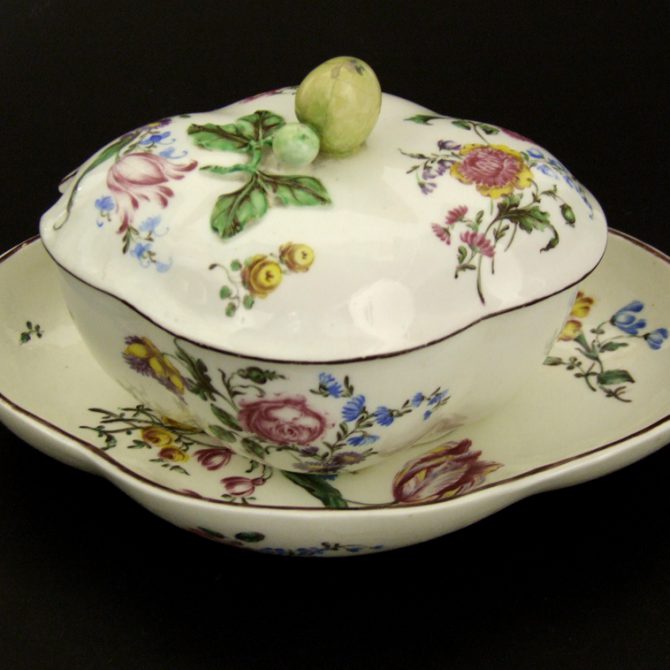
MENNECY c.1750 – 1760 French Soft-Paste Porcelain
An 18th Century Mennecy Porcelain Tureen Cover and Stand c.1750-1760. Decorated with Garden Flowers Including Roses and Tulips. Incised `D V` to the Base of the Stand and Tureen for the Duc de Villeroy.
SOLD
- Condition
- The finial on the cover is restored, probably made-up, this is old restoration which has started craze. Minute glaze frits to the edge of the cover c.1 or 2mm.
- Size
- The finial on the cover is restored, probably made-up, this is old restoration which has started craze. Minute glaze frits to the edge of the cover c.1 or 2mm.
- Provenance
- The Darblay Family Collection of 18th Century Mennecy Porcelain. This important collection of Mennecy porcelain was formed in the 19th century by the Darblay family, especially the paper magnate Ayme-Henri Darblay (1854-1899). The family lived near Mennecy and built up an extensive collection of porcelain from the factory. Ayme-Henri published `Villeroy, Son Passe, Sa Fabrique de Porcelaine et Son Etat Actuel` in 1901. This sumptuous book is still an important reference guide to Mennecy porcelain.
- Stock number
- 22263
Information
Mennecy Porcelain :
The factory was started by Francois Barbin under the protection of Louis-François-Anne de Neufville, Duc de Villeroy (1695-1766). Barbin had been making faïence under Villeroy`s protection, he was also making porcelain in Paris from 1734/35. He had to move to the grounds of the Château de Villeroy, near the village of Mennecy (Île-de-France) in 1748 because Francois Barbin did not have letters of patent from the king and so was refused permission to produce porcelain in Paris. A monopoly was enforced with legal action taken to prevent anyone producing porcelain "in the manner of Saxony" (i.e. Meissen porcelain), this monopoly was granted to the manufacture of porcelain at Vincennes. Legal action was used to close down the Paris factory, this included impounding the porcelain and then reselling it. The earliest porcelain produced at Mennecy (1734-1748) is so far unidentified. The porcelain made after 1748 tends to be rather light and the glaze often has a pearl like appearance. Most of the production consists of small pieces of porcelain for the table and dressing sets, small boxes and small porcelain figures were made too. The pieces are often but not always marked with an incised `D V` to the base for the Duc de Villeroy. Mennecy porcelain was copied/faked by the 19th / 20th Paris firm of Sampson, these pieces also often carry the incised `D V` mark.
